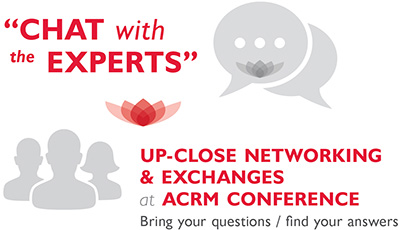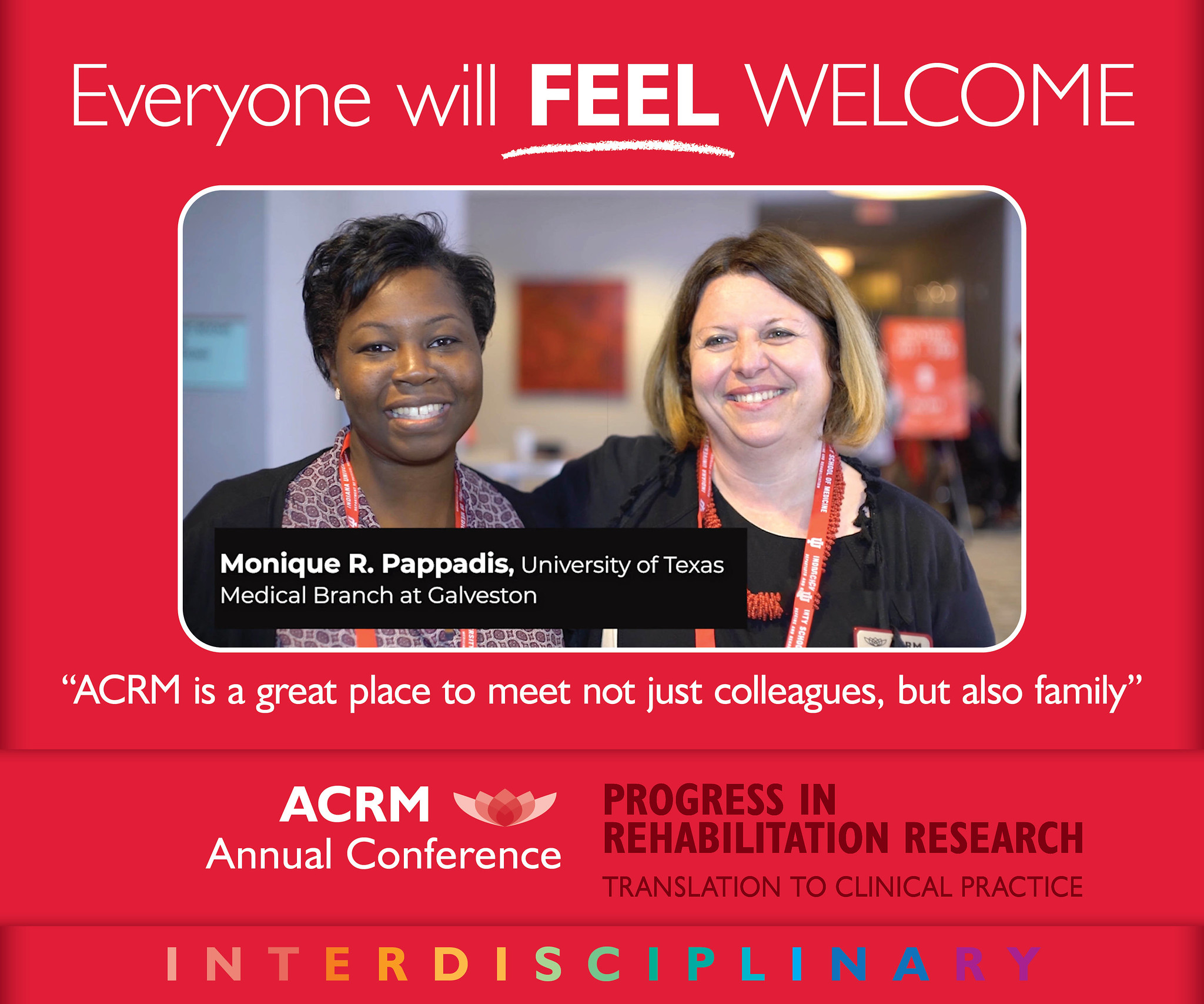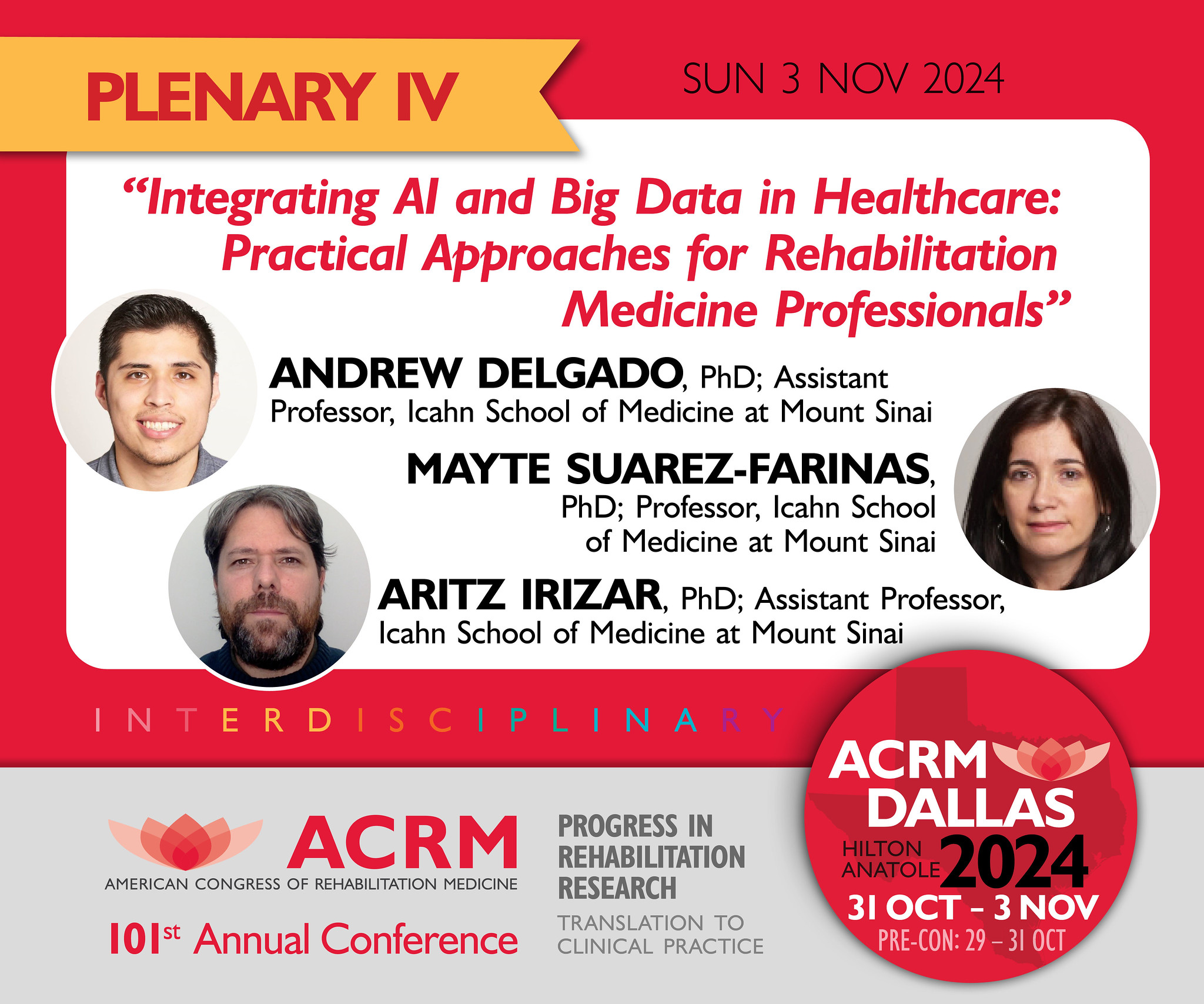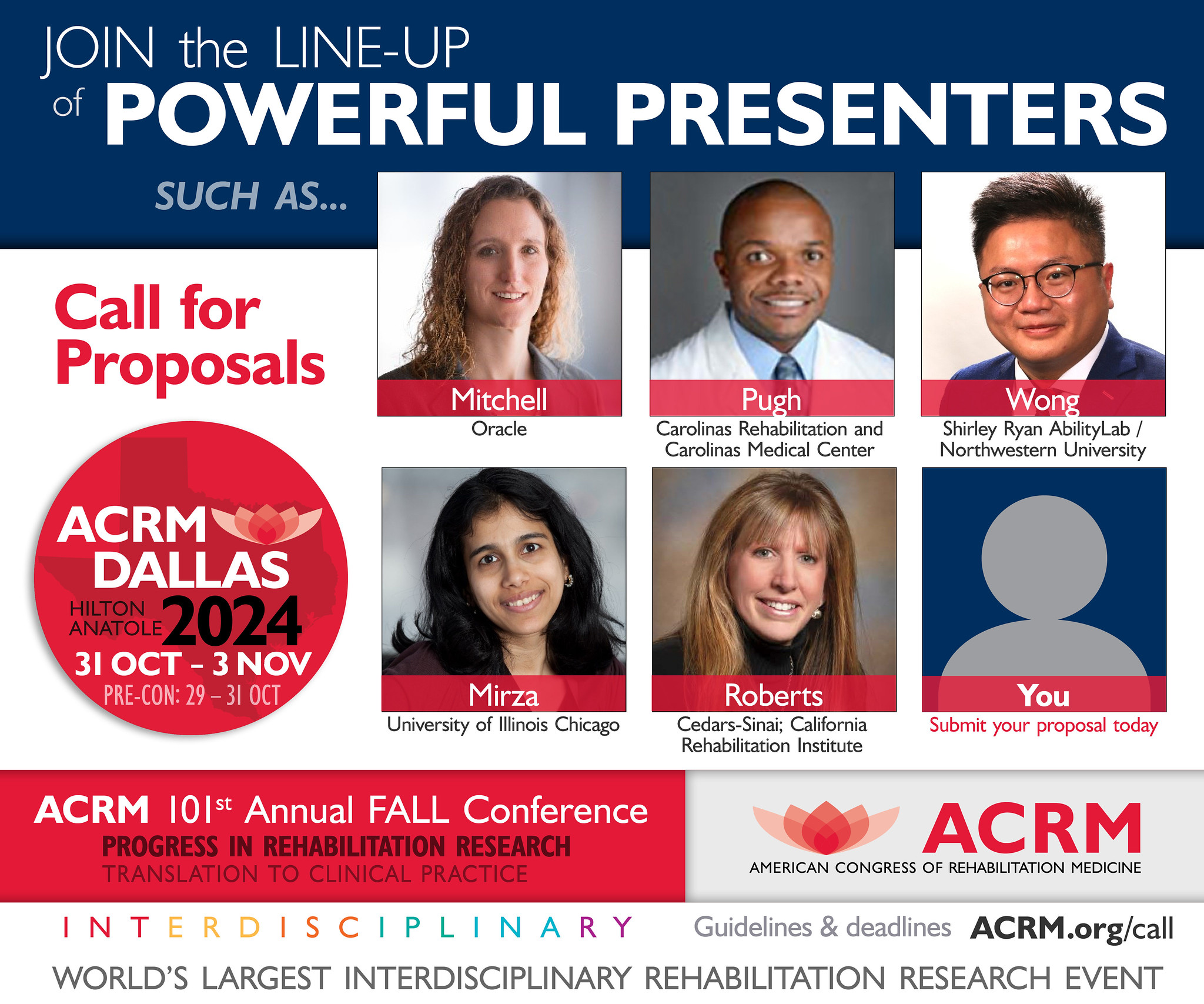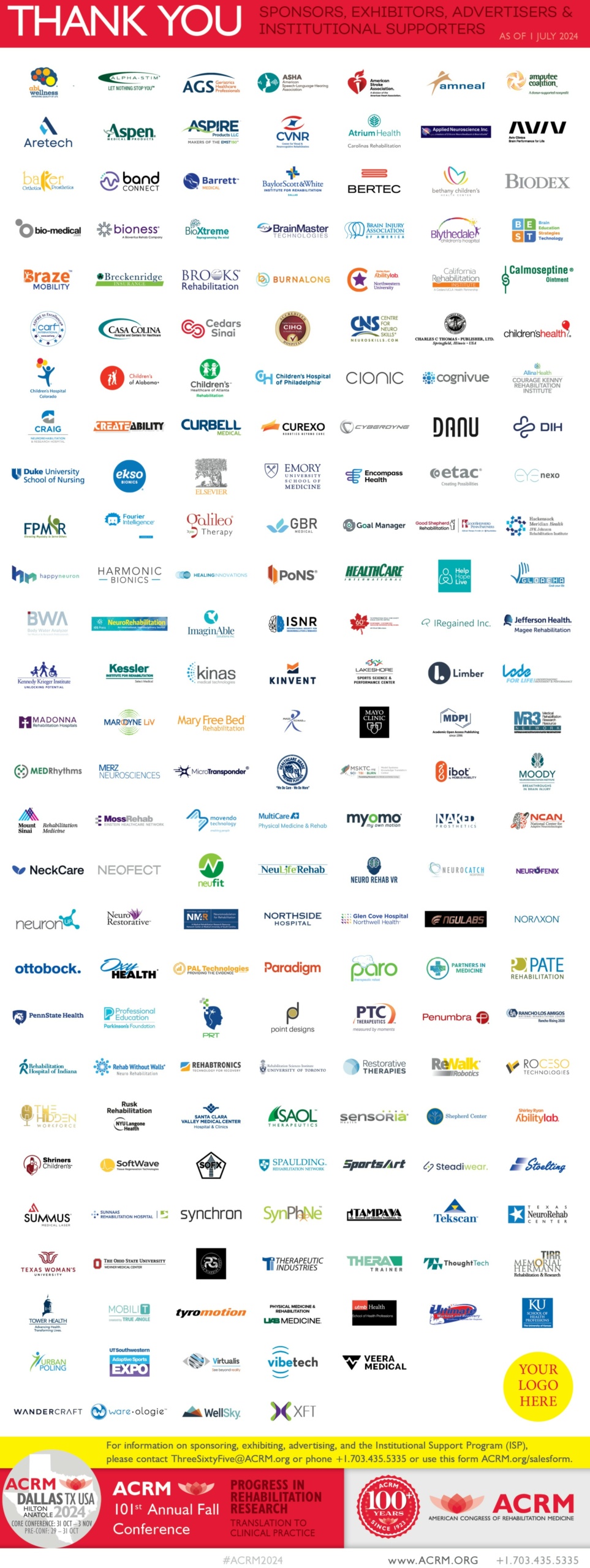up to 7.75 hours CME available
PLENARY I
Preparing Rehabilitation Clinicians and Researchers for Transformative Health Care and Pragmatic Research
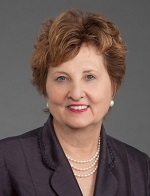
Pamela Duncan
PRESENTER: Pamela W. Duncan PhD, PT, FAPTA, FAHA; Professor of Neurology and Senior Policy Advisor for Transitional Outcomes, Wake Forest Baptist Health, Winston-Salem, NC
The Centers for Medicare and Medicaid (CMS) is setting new directions for management of patients with complex conditions. For these patients, CMS has established both payment and care delivery models. These new directions of care require the engagement of rehabilitation providers and the endorsement of functional status as the primary currency for value based care. The transformation journey for impactful clinical practice and clinical research will require integrated care across the continuum with patient- centered care plans agnostic to site of care, and assessment of long term outcomes.
EXCITING EXPO
One-day registration includes full access to the ACRM EXPO, 10:00 AM – 8:00 PM, featuring industry leaders in rehabilitation products, technology, education and MORE. New in 2016, you’ll also find Chat with the Experts and Product Theater sessions on the EXPO floor, as well as the popular Poster Grand Rounds.
CHAT WITH THE EXPERTS
“Chat with the Experts” is an exciting new series debuting at this year’s conference to connect you with the LEADING EXPERTS. Today’s schedule includes:
Mid-Career Development Advice #1144
with Edelle Fielde-Fote, Pam Duncan, Joy Hammel and Jim Malec
Telehealth Chat
Deirdre Dawson, Dee Sperry, Helen Hoenig
Integrating Clinical Practice and Research #1138
John Whyte, Flora Hammond, Sue Ann Sisto
PRODUCT THEATER
 RESTORATIVE THERAPIES, INC.
RESTORATIVE THERAPIES, INC.
Restorative Therapies, Inc. will introduce the Xcite Clinical Station, a versatile and easy-to-use portable FES therapy system for neuromuscular re-education.
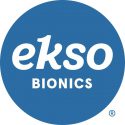 EKSO BIONICS ®
EKSO BIONICS ®
Ekso Bionics ® will showcase preliminary findings on the use of Ekso GT —
the first and only exoskeleton FDA cleared for use with stroke and spinal cord injury up to C7
POSTER GRAND ROUNDS
Join this moderated walking tour of selected award-winning posters displayed inside the EXPO hall. Poster authors will present the key points of their study and answer questions. Learn More >>
EXHIBITOR RECEPTION
The day will culminate with this high-energy event of connections and discovery.
3 BLOCKS OF CONCURRENT SESSIONS
 On Wednesday, choose from more than 80 symposia from 15 focus area tracks. Use the free Conference App to search symposia by title, ID#, presenter, track, day, or key word and read full descriptions including presenter details and more. Here are a few of today’s highlights …
On Wednesday, choose from more than 80 symposia from 15 focus area tracks. Use the free Conference App to search symposia by title, ID#, presenter, track, day, or key word and read full descriptions including presenter details and more. Here are a few of today’s highlights …
SPECIAL SYMPOSIUM
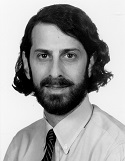
Lee Goldstein
Concussion, Traumatic Brain Injury, and Chronic Traumatic Encephalopathy: New Insights From the Battlefield, Gridiron, and Lab Bench #533
With Lee Goldstein, MD, PhD, Associate Professor of Psychiatry, Neurology, Ophthalmology, Pathology & Laboratory Medicine, Biomedical Engineering, Electrical & Computer Engineering, Neurotrauma Laboratory at Boston University School of Medicine and College of Engineering
Moderator: Douglas Katz, MD, FACRM, FAAN
Emerging research supports links between repetitive concussive and subconcussive head injuries (contact sports, accidents, blast exposure) and long-term cognitive and neuropsychiatric problems, and increased risk for neuropathological sequelae, including chronic traumatic encephalopathy (CTE). The first part of the presentation will highlight neuropathological evidence of CTE in the first case series of postmortem brains from blast-exposed veterans compared to brains of young athletes with confirmed CTE. The second part will highlight experimental results from new mouse models of blast and impact TBI. Blast-exposed mice also exhibit evidence of CTE-linked neuropathology. Kinematic analysis and biomechanical modeling have revealed similarities and differences between blast and impact neurotrauma that inform clinical understanding of concussion, TBI, and CTE. Learn More >>
SPECIAL SYMPOSIUM
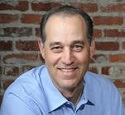
Mark D’Esposito
The Modular Brain
Featuring Mark D’Esposito MD, Professor of Neuroscience and Psychology and Director of the Henry H. Wheeler Jr. Brain Imaging Center at the University of California, Berkeley.
The brain is widely assumed to be a modular system. In this talk, I will discuss a series of empirical findings from functional MRI studies that begin to elucidate the neural architecture of modular processing by showing that brain modules execute discrete processes and connector hubs are likely integrating and sending information across modules in support of goal-directed cognition. I will also discuss how a better understanding of this type of large scale organization of the brain may lead to new approaches in the diagnosis, treatment and rehabilitation of neurological and psychiatric (or cognitive) disorders. Learn More >>
Mark Ylvisaker Memorial Pediatric Brain Injury Symposium

Shari Wade
Rehabilitation Interventions for Pediatric Brain Injury: Challenges, Opportunities, and the Role of Everyday People
Featuring Shari Wade, PhD, Director of Research Physical Medicine and Rehabilitation at the Cincinnati Children’s Hospital Medical Center
This talk will focus on the emerging evidence base for rehabilitation interventions for pediatric brain injury including the growing evidence supporting the efficacy of problem-solving and parenting-skills interventions. Emphasis will be placed on the quality of existing evidence, challenges and opportunities for advancing pediatric TBI intervention research including using novel trial designs to address heterogeneity within the population. Consideration will also be given to how TBI interventions can incorporate “everyday people” such as parents and teachers into their design and implementation. Learn More >>
SPECIAL SYMPOSIUM
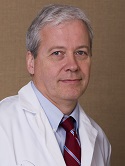
Armin Curt
Recovery of Locomotor Function in SCI: How the Brain and Spinal Cord Interacts #1016 SCI
Featuring: Armin Curt, MD, FRCPC, Medical Director of the Spinal Cord Injury Center at the University Hospital Balgrist and professor of paraplegiology at the University of Zuerich, Switzerland
Recovery of walking function after neurotrauma, e.g. after spinal cord injury, is routinely captured using standardized walking outcome measures of time and distance. However, these measures do not provide information on possible underlying mechanisms of recovery, nor do they tell anything about the quality of gait. Patients with an incomplete spinal cord injury are a very heterogeneous group of patients with a wide range of functional impairments. A stratification of these patients would allow increasing sensitivity for hypothesis testing and a more targeted treatment strategy. Understanding the interaction between the brain and spinal cord in controlling locomotor function and how these interactions might be modified and facilitated during rehabilitation will be of importance to advance locomotor training. This will be also essential to inform clinical trials and targeting. Learn More >>
NDD LECTURE LUNCHEON
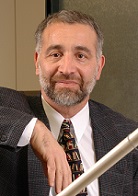
Daniel Corcos
Mechanisms Underlying Exercise Efficacy in Parkinson’s Disease #970
*Ticketed Event
with Guest Speaker, Daniel M. Corcos, PhD
Professor, Department of Physical Therapy and Human Movement Sciences at Northwestern University, Feinberg School of Medicine
The evidence that exercise of all kinds is beneficial for everyone is clear and compelling. For individuals suffering from a neurodegenerative disease such as Parkinson’s disease, exercise should be considered as medicine. This presentation will outline the benefits of exercise that are specific to Parkinson’s disease. The benefits of resistance training, endurance training and balance training will be outlined. The presentation will discuss what is known about the dose response to exercise. The presentation will also discuss different mechanisms that bring about therapeutic change. The mechanisms will include brain mechanisms, spinal mechanisms as well as potential trophic and inflammatory mechanisms.
BRUCKER INTERNATIONAL SYMPOSIUM & RECEPTION
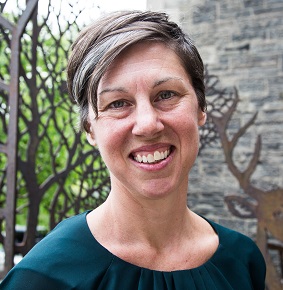
Stephanie Nixon
Global Health and Rehabilitation Research: What are the opportunities on the Horizon? #24
With Stephanie Nixon, BA, BHSc, MSc, PhD
The field of global health has grown rapidly in recent years, becoming a magnet for students and a source of significant new research funding. Rehabilitation has a crucial role to play within global health, and this role is on the rise. In this presentation, Dr. Nixon provides an overview of the United Nations Sustainable Development Goals, the Convention on the Rights of Persons with Disabilities, and other foundational concepts within global health. She then introduces lessons from global health research that stand to benefit rehabilitation researchers, with a focus on health equity, inclusion and improved wellness for all.
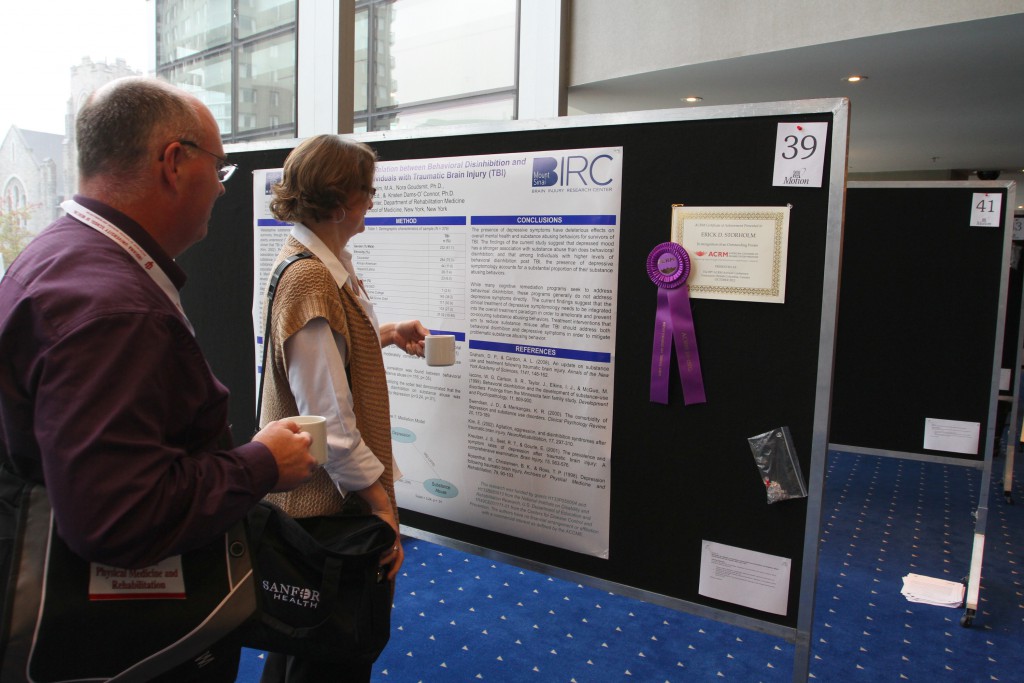 SCIENTIFIC POSTERS
SCIENTIFIC POSTERS
Need to know about cutting-edge research impacting today’s clinical practice? View more than 600 scientific posters on display today in Salon D from 10:00 AM – 5:00 PM.
ACRM COMMUNITY GROUP MEETINGS
The heart of ACRM is its interdisciplinary special interest and networking groups. Open to all members, they provide outstanding opportunities for mentorship, collaboration, career-building networking, leadership, authorship, recognition and comradery.
If you register for the conference as a non-member, you will automatically receive a 6-month introductory membership to ACRM. Enjoy the benefits right away by attending the community meetings relevant to your interests and expertise.
See the Complete Schedule of Community Group Meetings >>
Or by calling +1.703.435.5335
BOOK HOTEL >>
VISIT THE CONFERENCE WEBSITE >>>
*Although significant changes are not anticipated, all sessions, presenters and schedules are subject to change.



